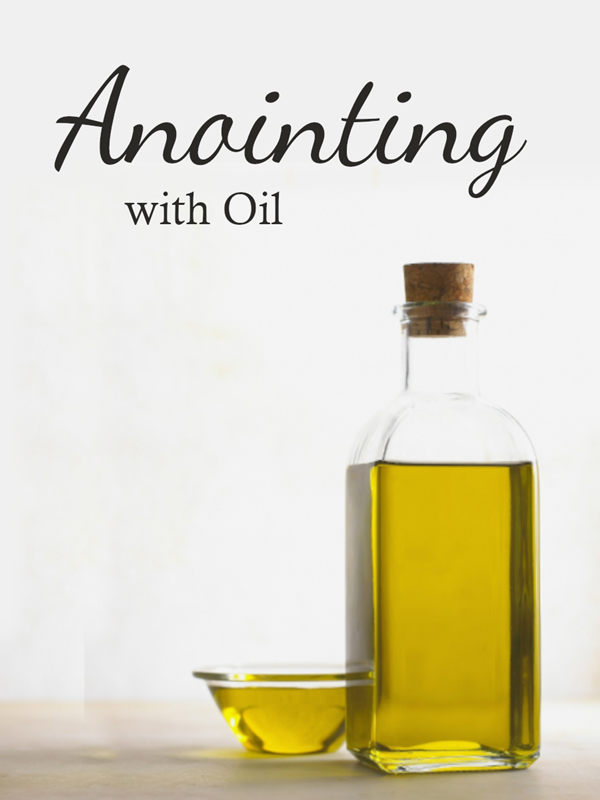A church that sells the anointing oil is no longer a church but a Market place, and that is exactly what many churches have become – a Market Place.
In Matthew 21:21-22, we read that “Jesus went into the temple of God, and cast out all them that sold and bought in the temple, and overthrew the tables of the moneychangers, and the seats of them that sold doves, and said unto them, It is written, My house shall be called the house of prayer; but ye have made it a den of thieves.”
The Scripture condemns every act of buying and selling in the temple of God; and if Jesus walked into many churches today, he would do the same thing he did to those who were buying and selling in the temple of God; he would cast out all those that practised buying and selling in the church of God; he would overthrow their moneychangers and break in pieces their bottles of anointing oil, with which they deceive the people.
Anointing oil, mentioned 20 times in Scripture, was used in the Old Testament for pouring on the head of the high priest and his descendants and sprinkling the tabernacle and its furnishings to mark them as holy and set apart to the Lord (Exodus 25:6; Leviticus 8:30; Numbers 4:16).
Three times it is called the "holy, anointing oil," and the Jews were strictly forbidden from reproducing it for personal use (Exodus 30:32-33). God gave this specific commandment because He had foreseen replication and abuse of the anointing oil.
The recipe for anointing oil is found in Exodus 30:23-24; it contained myrrh, cinnamon and other natural ingredients. There is no indication that the oil or the ingredients had any supernatural power. Rather, the strictness of the guidelines for creating the oil was a test of the obedience of the Israelites and a demonstration of the absolute holiness of God.
Anointing oil was never used to anoint any prophet in Israel. Moses was not anointed with oil. Joshua who took over from him was not anointed with oil. Samuel used it on Saul for kingship, but Samuel himself as a prophet was not anointed with oil. Looking at all the prophets of old, Isaiah, Jeremiah, Elijah, Elisha etc., none was anointed with oil for commission into office. When Elisha was taking over from Elijah, was he anointed with oil? All through the old testament, no prophet was anointed with oil.
Who then was anointed with oil? It was only the kings. Why? The prophets were chosen by the Holy Ghost. The Bible says the prophets spoke as they were moved by the Holy Ghost. Since the Holy Ghost had come upon them, they did not need anointing oil to be commissioned into office.
Anointing oil put upon the priest was a symbol of the Holy Spirit. Why? The priesthood office was by family succession but, the office of the prophet was not by natural succession. It is whomever the Holy Spirit chooses. Since the Holy Spirit has come upon him, anointing is needless. When the main Person has come, the shadow is no more required.
In the Old Testament, there was no instance that a prophet anointed anybody with oil for the purpose of praying for him. Whether he was sick, or he wanted breakthrough, there was no instance like that.
When Elisha was to decree a child for the Shunammite woman, did he anoint the woman with oil? When the woman eventually gave birth to a son and he died, did Elisha anoint the child with oil to raise him up from the dead? In a similar scenario, did Elijah use oil to bring the son of the widow of Zarephat back to life?
This means the way the anointing oil is used in our time is even strange to the old testament. Thought for the day:There are many strange practices in today’s church. Do not be part of it.
Now that you have found out the truth, it is your duty to seek out a true church that preaches the truth. If you are one of those pastors or prophets selling Anointing oil, REPENT today. Seek forgiveness and mercy from God and the Lord will be merciful to you through the grace of our Lord Jesus Christ .
Subscribe today on our website 👇
https://cschurchonline.org/
𝑩𝒆𝒍𝒐𝒘 𝒊𝒔 𝒂 𝒍𝒊𝒏𝒌 𝒕𝒐 𝒂𝒍𝒍 𝒐𝒖𝒓 𝑺𝒐𝒄𝒊𝒂𝒍 𝑴𝒆𝒅𝒊𝒂
https://churchonlinesocials.vercel.app/





